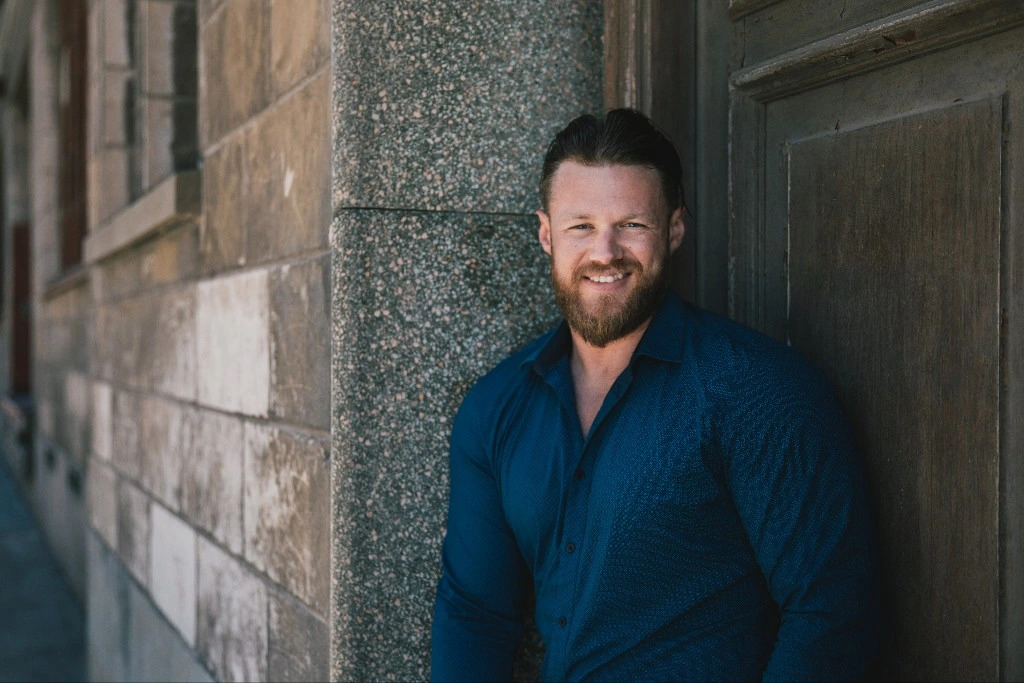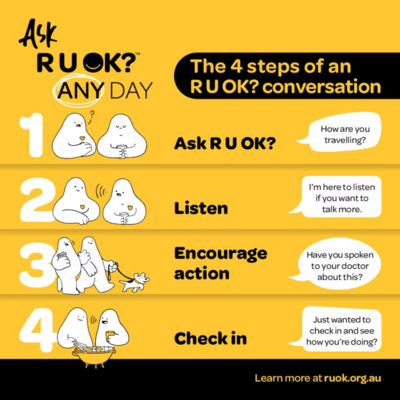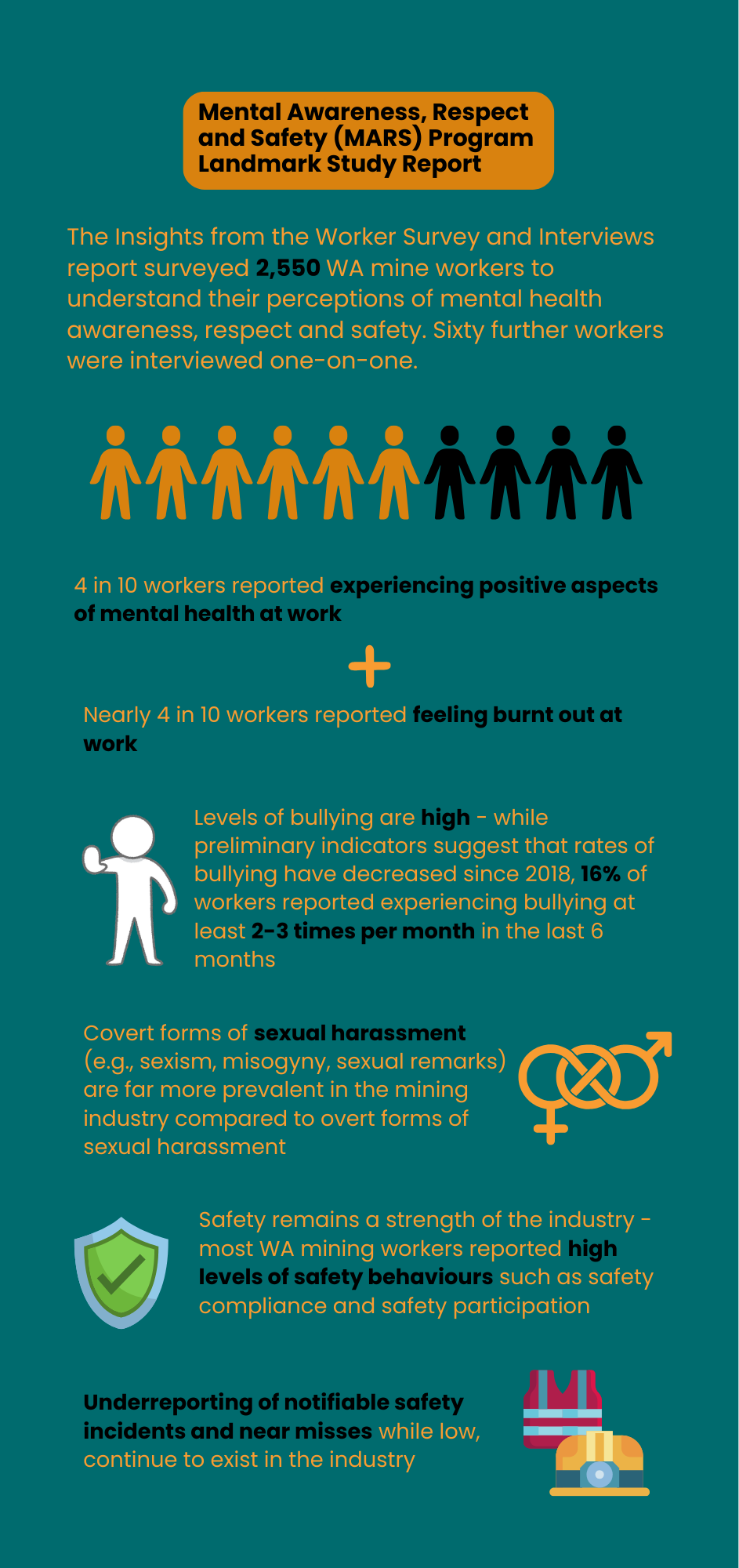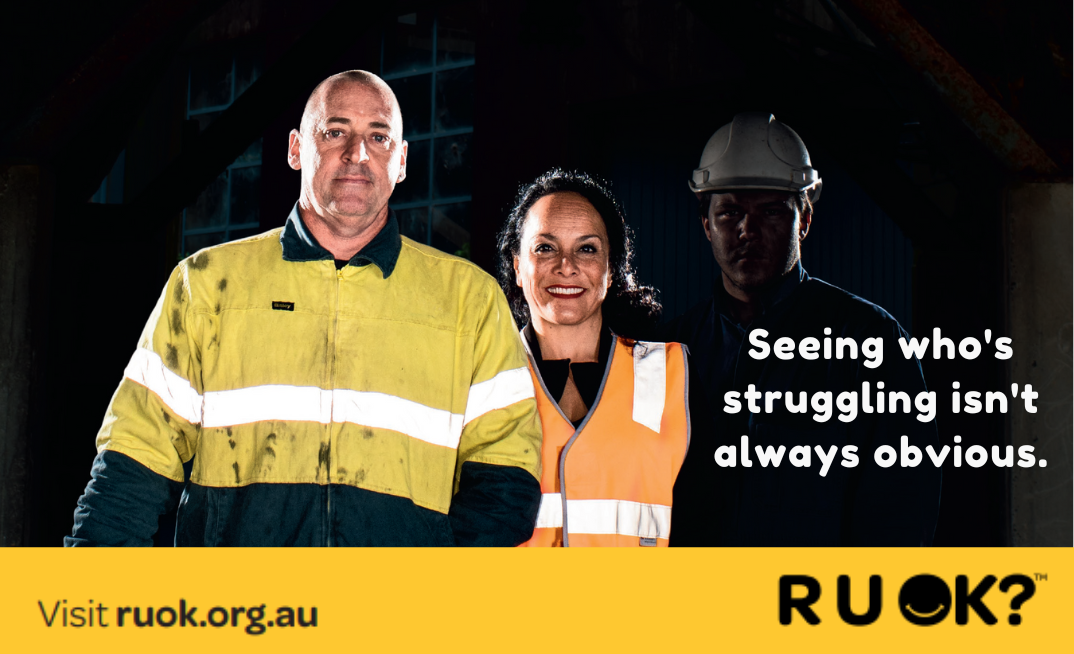Today is R U OK? day – an opportunity to remind us all about the need to look out for our own mental health as well as that of our friends, families and colleagues.
But as Joshua Ellard, the founder of LevelHead and a former FIFO worker who spent 17 years in the mining industry, says, mental health conversations need to be normalised.
As this year's R U OK? Day theme says "Ask R U OK? Any Day."
When asked what it was like to work away, Ellard said it's a bit of a mix of challenges and rewards.
YOU MIGHT ALSO LIKE

"Isolation is one of the biggest challenges," he told Energy News Bulletin.
"Without your support network close by, it can be hard to cope when things get tough.
"Another significant challenge is missing out on important moments at home...whether it's family events or milestones. Sometimes, the job demands mean you simply can't be there, which can take a toll," he said.
According to a report funded by the Mental Health Commission of Western Australia, FIFO workers and their partners are an at-risk group for mental ill health.
In comparison to the benchmark and norm sample, FIFO workers indicated the highest level of psychological distress (depression and anxiety), more frequent suicidal thoughts and worse levels of burnout.
In 2024, R U OK? is encouraging Australians to check in with others all year round because life happens every day.
According to the organization, although an increase in supporting behaviours around R U OK? day has been observed, people shouldn't wait until September to reach out to the people in their world who might be struggling because life happens every day.
"R U OK? day is about raising awareness and normalising conversations about mental health, helping people feel comfortable reaching out and asking questions," Ellard added.
"It's also important to remember that it shouldn't just be about one day...we need to integrate this into our everyday practices.
"Showing empathy, caring for others and using the R U OK? framework should become a regular part of how we support each other."

Small steps for a long way
While governments and companies are improving, more needs to be done to support the mental health of FIFO workers when needed.
"I've personally struggled with mental health issues and substance abuse, so I can deeply relate to what many FIFO workers go through," Ellard continued.
"One of the biggest challenges for some workers is losing sight of their purpose - they go up to the site, work hard, and then come back and just "play", which can create an unhealthy cycle.
"I've seen a lot of progress when it comes to mental health, but there's still work to be done," he said, "Some issues still go unnoticed or unaddressed, so it's important that we keep raising awareness and continue to push for improvement.
"We need to ensure we're not overlooking poor behaviours or ignoring signs that someone might be struggling."

FIFO Focus founder and MD Sandra Lam agreed, saying there are slow improvements in providing support for FIFO workers, but there is still a long way to go.
"Organisations have really increased their provision of mental health support and training to FIFO workers, which is great," she said.
"Some organisations are spending a lot more resources on the camp, including better facilities, food, and social activities - this is a positive step.
"However, we do need to look at ways to reduce the creation of psychological harm through the way work is designed, managed and coordinated, so managing the psychosocial risks is where the efforts should be increased."
This March, a fourth report in the landmark study commissioned by the WA government into mental health and workplace culture across the state's mining sectors found issues, such as burnout and sexual harassment, still persist.

"On a personal level, whether it's you who works away, or it's your partner, brother, father, mother, sister, cousin, or friend, it's crucial to check in and ask how they're doing," Ellard said.
"Sometimes it takes someone experiencing their own mental health struggles to realise just how powerful this simple question "Are you okay?" can be and how real mental health problems are for people.
"Let's normalise these conversations because sometimes just asking "Are you okay?" can make a huge difference."























